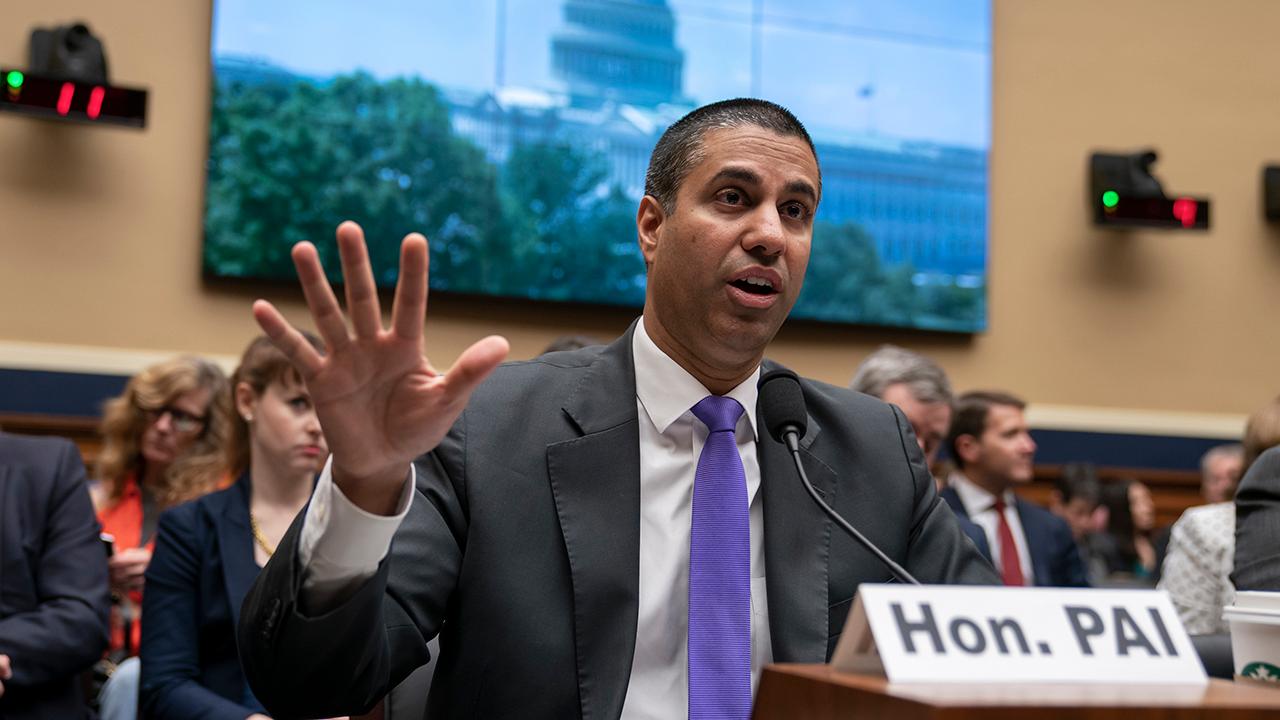FCC empowers telecom firms to automatically enroll customers in call blocking services
The Federal Communications Commission on Thursday approved a new order designed to give wireless carriers the clearance to automatically enroll consumers in call blocking technology, a decision that comes amid mounting criticism that the measure would end up restricting legal communications.
The proposal, which seeks to clarify existing federal law, will take effect once the agency releases final language. In an op-ed published prior to the vote, Chairman Ajit Pai said stopping unwanted calls is a top priority for the FCC and brushed aside calls from critics to delay the vote.
“Americans whom I hear from want relief from the flood of unwanted robocalls now. They don’t want us to wait,” he wrote in USA Today.
Pai's comments were echoed by Commissioner Geoffrey Starks, who said it is "incumbent upon us to take positive steps" to stop the flood of robocalls.
"Clarifying that providers may offer informed opt-out call blocking services will make these tools available to millions more consumers as soon as possible," he said in a statement.
Some FCC officials, however, raised concerns over the criteria that Pai proposed that carriers use to block calls, including short bursts of a large number of communications, a rationale that could impact flight notifications, for example.
Commissioner Michael O'Rielly, a Republican, said efforts to attack legal and fraudulent calls should not interrupt the operations of those organizations that "regularly engage in so-called robocalling to provide...critical and time-sensitive information."
The FCC is pushing carriers to develop call authentication tools. While Pai says the industry has made headway on that goal, he noted the FCC would “move quickly to adopt regulations” to require the firm to implement the technology if it doesn’t occur by the end of 2019.
To address concerns from opponents, Pai also clarified the agency believes call blocking services should include a redress to allow consumers to raise concerns over which communications were prevented.
And while the FCC is urging wireless carriers to offer call blocking for free, the order would not mandate it.
"We should be upfront and clear with consumers that today's decision offers no more than an expectation that phone companies installing this technology will not charge consumers the premium for its use," Commissioner Jessica Rosenworcel said in a statement.
CLICK HERE TO GET THE FOX BUSINESS APP
In a recent blog post, two FCC officials said 2.5 billion illegal robocalls were made in March and estimated that the cost to consumers of addressing the unwanted communications was at least $3 billion.
